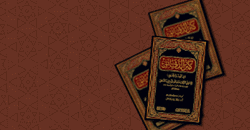The Fiqh of Adoption
Hanafi Fiqh
Answered by Sidi Faraz A. Khan
Question: Assalam Alaikum,
My wife and I are thinking of adoption. What is the fiqh of adoption? Is there a difference in the ruling for a girl vs boy? What are the mahram rulings for the adopted girl or boy? What is the wisdom in keeping the child’s family name (instead of my last name)?
Answer: Assalamu alaikum wa rahmatullah,
I pray this finds you in the best of health and faith.
The Immense Virtue of Caretaking (kafala)
In general, there is tremendous baraka and reward in fulfilling the needs of a fellow believer. Our Beloved Messenger (peace and blessings be upon him) said, “Whoever removes a worldly grief from a believer, Allah will remove from him one of the griefs of the Day of Judgment. Whoever provides ease to someone in difficulty, Allah will provide ease for him in this world and the next… And Allah continues to help the servant so long as the servant continues to help his brother.” [Muslim]
This virtue is only magnified when the recipient of one’s help and support is an orphan. The Prophet said that the one who cares for an orphan would be with him (peace and blessings be upon him) in Paradise, and he held up his blessed index and middle fingers with a slight gap to show how close together they would be. [Bukhari, Muslim]
The orphan should be treated with kindness and gentle care, as even rubbing his head out of love is something beloved to Allah and His Messenger (peace and blessings be upon him).
The Underlying Basis of Adoption
The key principle to keep in mind when understanding the fiqh of adoption is that the adopted child is not deemed a relative of the new caretakers at all; rather, the child is simply under their care. As established by the Qur’an and Noble Sunna, the child must retain his lineage despite his new upbringing.
From the Qur’an: Allah Most High states, “…nor has He made your adopted sons your sons. That is but a saying of your mouths. But Allah speaks the truth, and He alone guides to the way. Call them by (the names of) their fathers: that is more just in the sight of Allah.” (33:4-5)
From the Noble Sunna: The well-known incident of the companion Zaid ibn Haritha (Allah be well-pleased with him), who was adopted by the Prophet Muhammad (Allah bless him and send him peace) before Islam and hence called Zaid ibn Muhammad. After the above verses were revealed, the Prophet called him by true lineage, Zaid ibn Haritha.
As for the wisdom of this principle, it is stemmed in the Sacred Law’s preservation of lineage, one of the central aims (maqasid) of the Sharia. As Imam Biqa’i states in his tafsir, “A child cannot have two fathers. If that [a new name of the adopted child] were given consideration, lineage would be lost and resulting doubt [regarding ancestry] would be widespread. Truth would be turned upside down, which would result in the opening of several doors of corruption.” [Biqa’i, Nadhm al-Durar fi Tanasub al-Ayat was-Suwar]
Imam Biqa’i’s statement, “Truth would be turned upside down,” highlights the very essence of the matter. Simply put, an adopted child cannot be ascribed to the lineage of the new caretakers because the child is not actually from that family.
The Fiqh of Adoption
Based on this guideline, the following rulings apply (assuming, of course, that the adopted child was not already a relative of either caretaker):
(1) Because the child is not deemed a relative, neither the new caretakers nor any of their relatives are deemed unmarriageable kin (mahram, pl. maharim) of the child. Hence, he or she may marry any of them, and the family must abide by the proper rules and etiquette of hijab with the child upon his/her reaching puberty (and vice versa if the child is a girl).
(2) The child does not inherit from the caretakers or any of their relatives. The child can, however, be designated as recipient of a bequest by any of them, with the condition that the bequest not exceed 1/3 of the deceased’s estate. If the bequest made was greater than 1/3 of the estate, then the amount exceeding 1/3 would not be given unless the rightful inheritors that are sane and adult gave their consent (which is considered only after the deceased’s death).
(3) There is one case, however, that would render the child akin to the caretakers’ real child with respect to marriage and hijab (but not inheritance) – namely, if the mother were to nurse the adopted child (whether boy or girl) within the first 24 lunar months of the child’s life. If in that period the baby ingests any amount of her milk, even if a little, both caretakers along with their relatives (unmarriageable kin) would become unmarriageable kin of the child: marriage would be impermissible, and the hijab would not be mandatory.
[Maydani, Lubab; Haskafi/Ibn Abidin, al-Durr al-Mukhtar/Radd al-Muhtar; Ibyani/Qadri Basha, Sharh Ahkam Shar’iyya fi Ahwal Shakhsiyya]
(4) Lastly, if the child has any wealth of its own, the caretakers must safeguard that wealth. They cannot spend it except on the child if there is a need. Allah Most High states, “Devour not their property [by adding it] to your property – that is indeed a grievous sin.” (Qur’an 4:2)
Our Prophet (peace and blessings be upon him) highlighted this when he warned of the seven destructive enormities in Islam and listed among them “squandering the wealth of an orphan.” [Bukhari, Muslim]
And Allah knows best.
wassalam
Faraz
Checked & Approved by Faraz Rabbani
